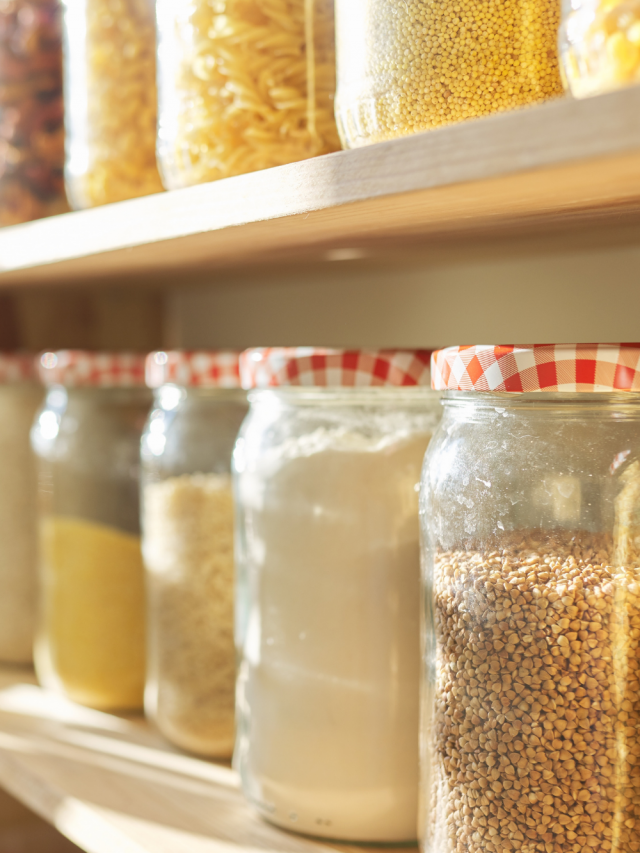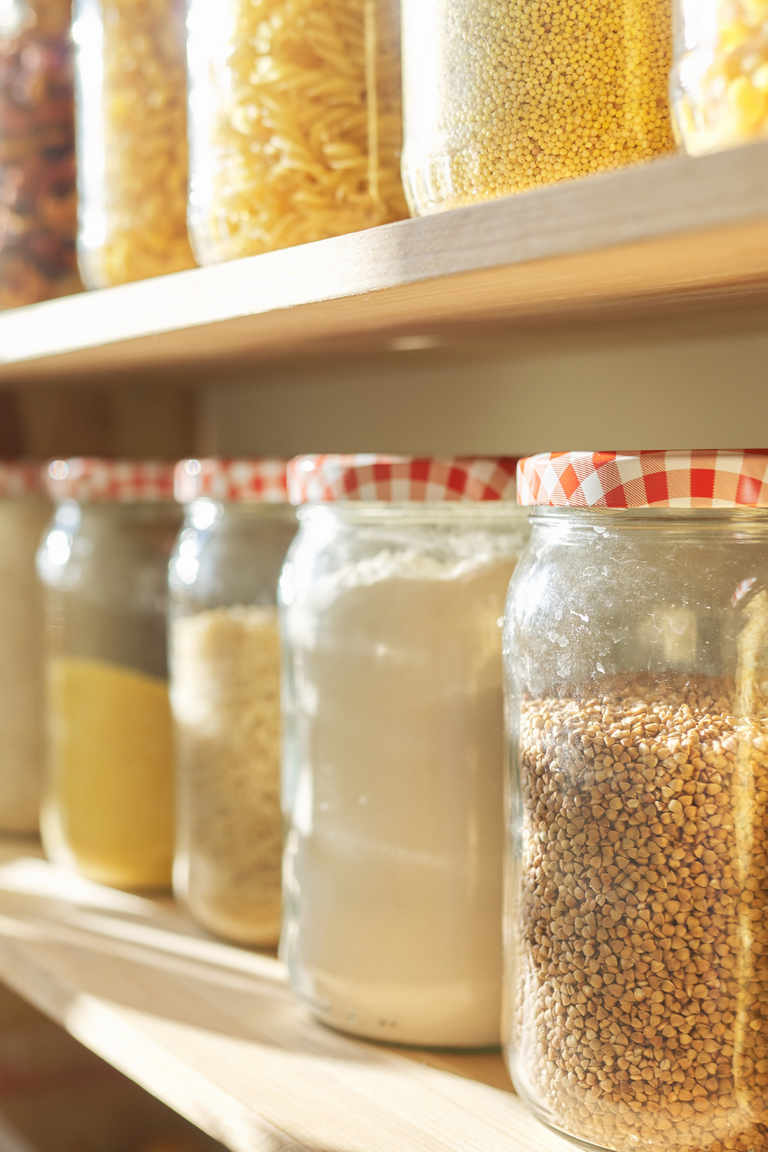
Be ready for any disaster or storm that may come your way with a well stocked pantry. These are the top foods for you to store in your kitchen pantry that have a long shelf life and will keep you and your family well fed until the disaster is over.
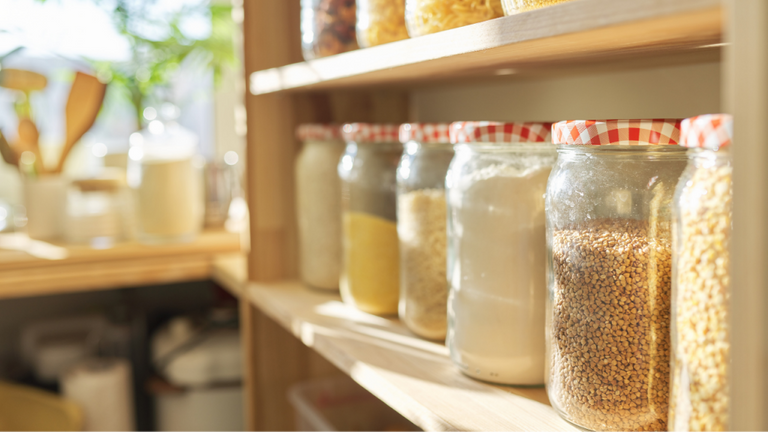
When I lived up in the north part of the country, we dealt with long, cold, winters. There were days and sometimes even weeks that we couldn't get into town to go grocery shopping. We had to learn to store food for those times to keep our family fed.
I fully believe you should be ready to feed your family for at least 30 days in any disaster. While I no longer have to prepare for winter snowstorms, we may easily face hurricanes that can wipe out our city in just a few hours. Even FEMA recommends that you keep a minimum of two weeks of food per person on hand for disaster preparedness.
If you are just starting out with getting ready for a disaster, there can be so much confusing information on what to store, how to store it, and how long you should store it for. And that confusion about short-term and long-term food storage leads many to NOT store extra food for their families.
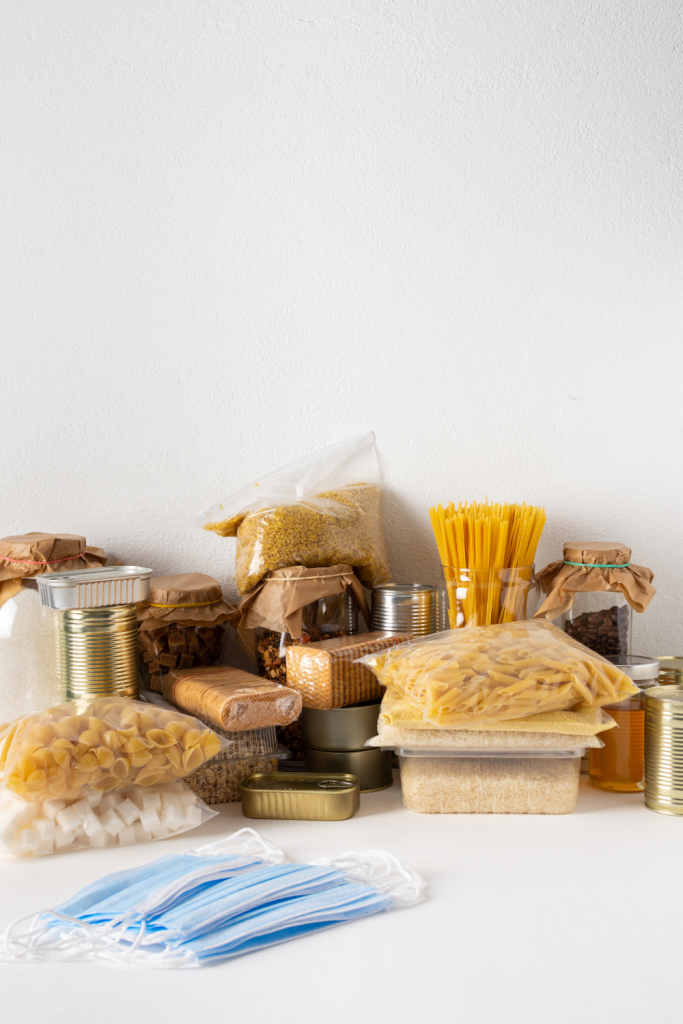
The first rule of thumb is to always store what you will eat. There's no sense in storing dried beans if your family refuses to eat them. The thought that "if they are hungry enough, they'll eat anything" may backfire during an emergency. You don't want to deal with food arguments on top of an already stressful situation.
The next rule of thumb is to store what you know how to prepare. If you have no idea what to do with that pound of dried beans or have never cooked oatmeal from scratch (not the instant kind), then you have a choice. Either learn how to cook them with different recipes and techniques, or store other things. When you are faced with a crisis, the last thing you want is to have to learn how to cook with unfamiliar ingredients.
The final rule of thumb is to prepare, not hoard. The main difference between preparing and hoarding is the need and usability of the item. If you don't eat gluten, for example, then buying the store out of the regular pasta, or all the bagged flour on the shelf is hoarding.
Buying a couple of extra bags of rice or beans is NOT hoarding if you will use them. That is preparing. Grab a few extra cans of canned corn, if you will use it.
While on the subject, don't buy ALL of the items in one category at once. Please. If you really need 50 pounds of spaghetti noodles, please take the time to do it over a period of time, or go to several stores. Don't make it harder for others to feed their family, too.
Short-term and long-term storage are two different categories. Short-term storage refers to being able to go a week to a month without having to go to the grocery store. This is great for saving money and having food on hand in case that unexpected company drops by at dinner time. You have more than enough to share.
Long-term storage refers to food that is stored for its maximum time. Many have long-term storage pantries that have food for up to a year. This goes beyond the basics of meat, fruits, and vegetables. And, you don't have to buy expensive freeze-dried foods to feed your family (unless of course, you want to)
Now that we have the rules of thumb to food storage, let's talk about the top foods to store in the pantry long term.
White Rice
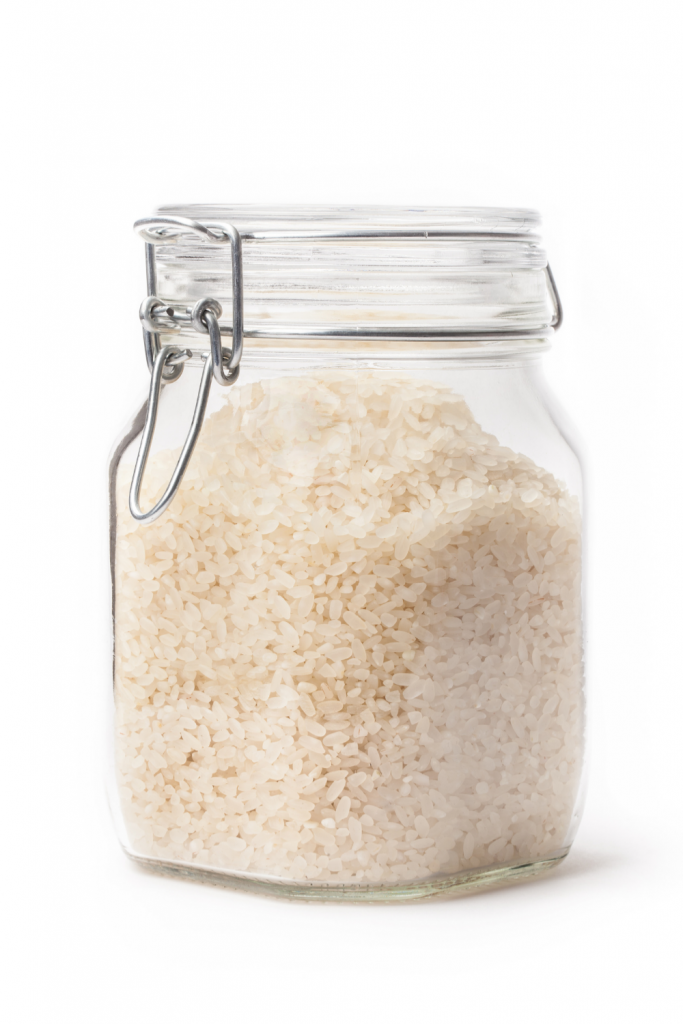
White rice goes great with many dinner entrees out there. And, just a little can go a long way, especially when it comes to how little you pay for it. When packaged in mylar bags and food-grade buckets, white rice can be stored for 20-30 years.
If you’d prefer to go the healthier route, you can always go with brown rice, but keep in mind that this type of rice only lasts in your pantry for up to 6 months.
Beans
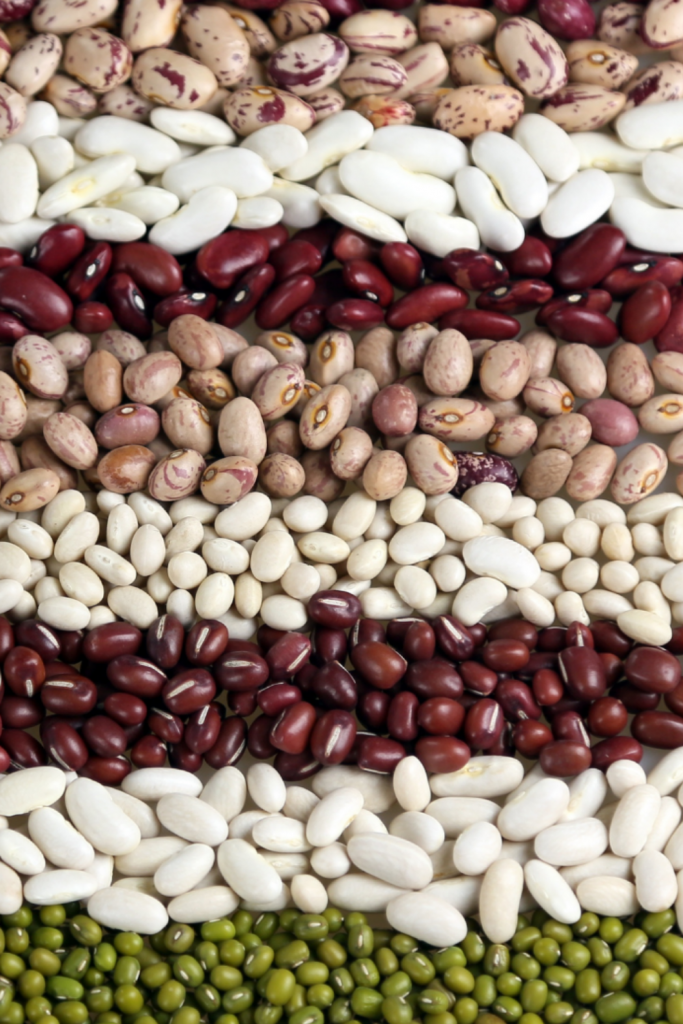
Canned beans are not only a cheap meal solution food item, but they contain important carbohydrates and protein that your family is needing. Canned beans taste delicious in a soup or chili, and can also be combined with ground beef or turkey to help stretch out a meal.
Canned beans are good for 2-3 years, and some have said they have eaten them beyond the "best by" date as well. As long as the can isn't bulging, or leaking, you can easily store canned beans for at least 3 years.
Dry beans will store for up to 30 years, in a mylar bag and bucket. They are often cheaper than canned beans, ounce for ounce. Having both on hand will make for tasty, easy meals.
Dry Pasta
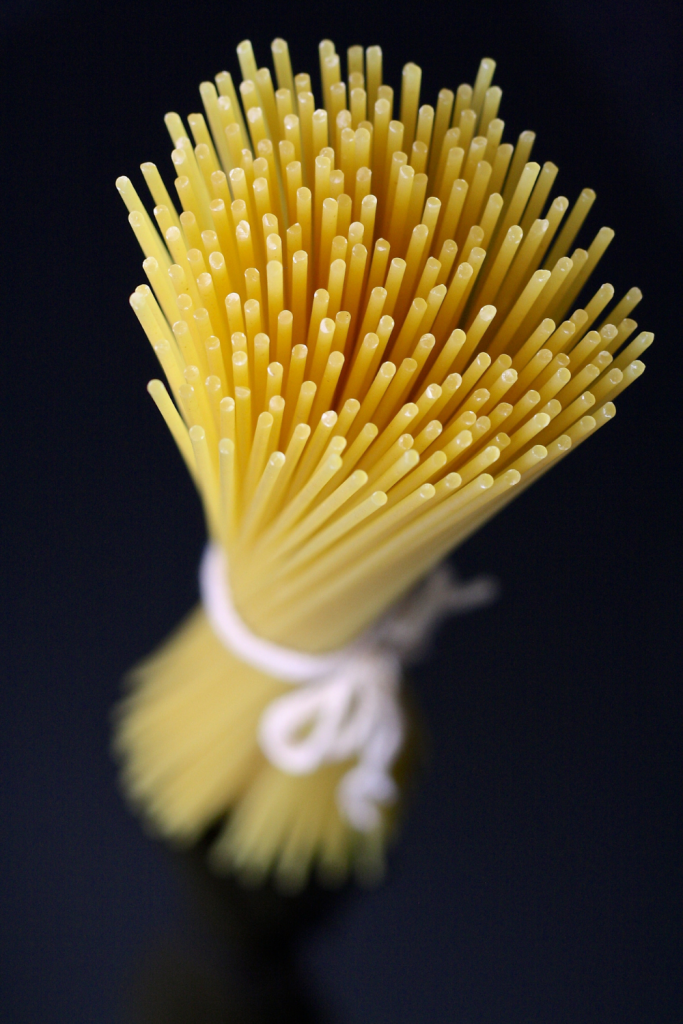
Dry pasta can last in your pantry forever and is also extremely cheap, so it only makes sense to stock up on it. Think of different noodles as well for different meals. Pasta is typically good for 12-18 months in the original packaging. Some people repackage that into vacuumed sealed bags for longer storage.
Some of our favorites to always have on hand:
Canned Vegetables
Canned veggies are a great way to stretch a meal, and to add those important nutrients into your diet. Canned veggies will store in a cool, dry place for up to 2 years typically. Ensure your stock is rotated and if your can show signs of bulging or leaking, toss them.
Don't forget that if you have a garden, you can pressure can your veggies and build your pantry storage cheaply.
Canned Meats
Canned meat may not taste as good as fresh meat, but it’s convenient to have on-hand if you’d like to make a last-minute chicken noodle soup or beef and noodles meal. Most canned meats are good for up to 3-5 years. Don't forget canned tuna, and salmon, too.
If you come across a great sale on chicken or beef, you can also pressure can your own meat. And while we are storing meats, don't forget to pick up an extra pack of jerky or beef sticks for a quick snack or easy meal while hiking or camping.
Canned Fruits
A great way to have fruit on hand at all times, canned fruit can help provide vitamins and nutrients. They also help to have favorite foods on hand, in times of stress. Canned fruits can be great alone or in a fruit salad. We have also used them in smoothies and loved them!
Don't forget to grab a jar or two of applesauce to keep on hand as well. It's a great oil replacement in baking as well as delicious as a snack.
Broth
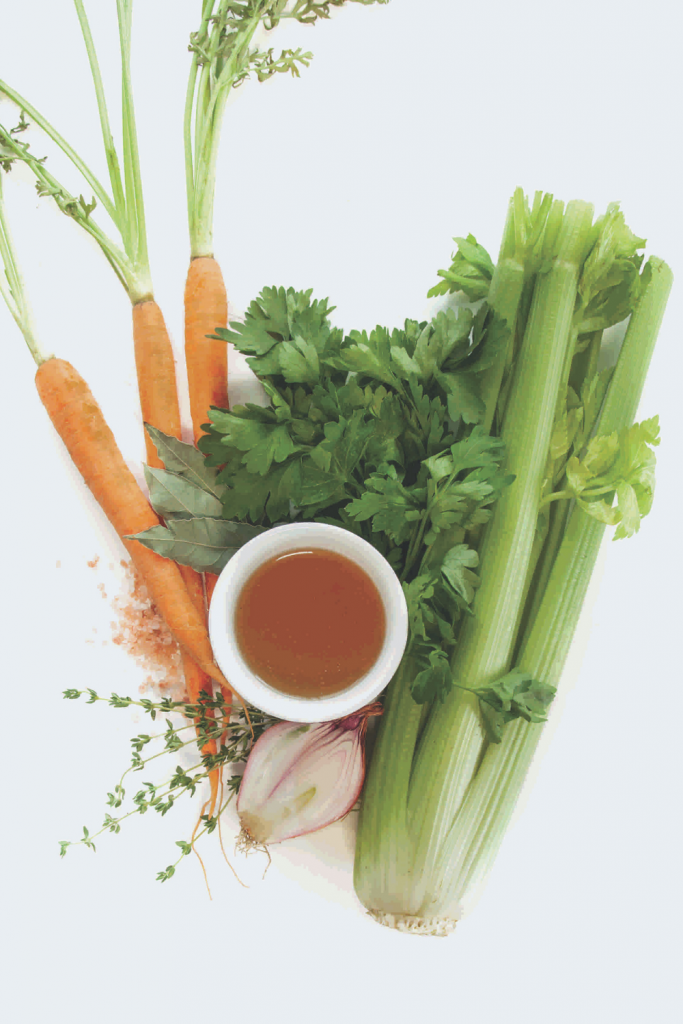
Not just for making gravies, broth is perfect for cooking rice, noodles, and more. If you are in a situation where water is hard to get (such as pipes freezing in the winter, or a power outage), having broth on hand can be a lifesaver as it provides needed water to drink. A commercial broth that is in cans can be stored for up to 18 months, the cartons up to 2 years.
Save the bones from your holiday turkey, that whole rotisserie chicken, or grab some from the grocery store next time you go and make your own for a cheaper, healthy option. You can home pressure can broth, and store that for up to 3 years, or freeze it for up to a year.
Instant Mashed Potatoes
Instant potato flakes are perfect for a side dish, as well as thickening soups, stews, and gravies as needed. When stored in an airtight container, they can be stored for several years. You'll want to store them in either glass jars with an airtight lid, or food-grade buckets with mylar bags.
Flour or Wheat Berries
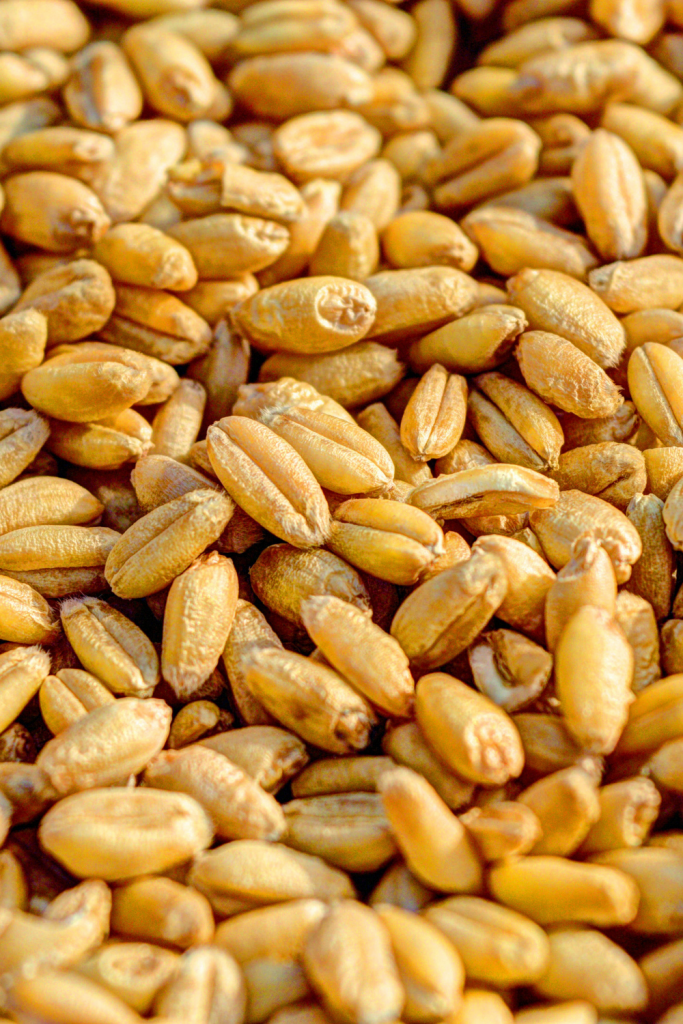
Stored in the original packaging on your pantry shelf, all-purpose flour can last about 9 months. When stored in the fridge or freezer, it can last indefinitely. All-purpose flour is great for any baking needs.
However, if it's an option for you, whole wheat berries can be stored for 30 years in an airtight container and milled into fresh flour as needed.
Eggs
Eggs contain a bunch of healthy protein in them and are very filling for just a few pennies. Besides them being served traditionally or as an omelet, some of your baking recipes call for them, so they’re always nice to have on-hand.
Store-bought eggs that have been washed will usually last 2-3 months under proper refrigeration. Farm fresh eggs that have NOT been washed, the bloom still intact, can last in the fridge for 8-9 months. If you are looking for a great way to store eggs longer term, try some freeze-dried eggs.
Peanut Butter
This can be a controversial item, honestly. While there are those who say that peanut butter has a short shelf life, there are some who believe that it can last for several YEARS beyond the "best by" date. The oil in most peanut butter can go rancid, making it not safe or fun to eat.
I typically would only purchase enough jarred peanut butter to get my family through 5-6 months. Beyond that, you can buy powdered peanut butter that should easily be shelf-stable for several years without any worry.
Protein Powder
Protein powder is a nutritional supplement that can be used for a number of different health reasons. It can also store for a long period of time.
Use this to make smoothies, add to coffee, or sprinkle over cereal for a protein boost.
Powdered Milk
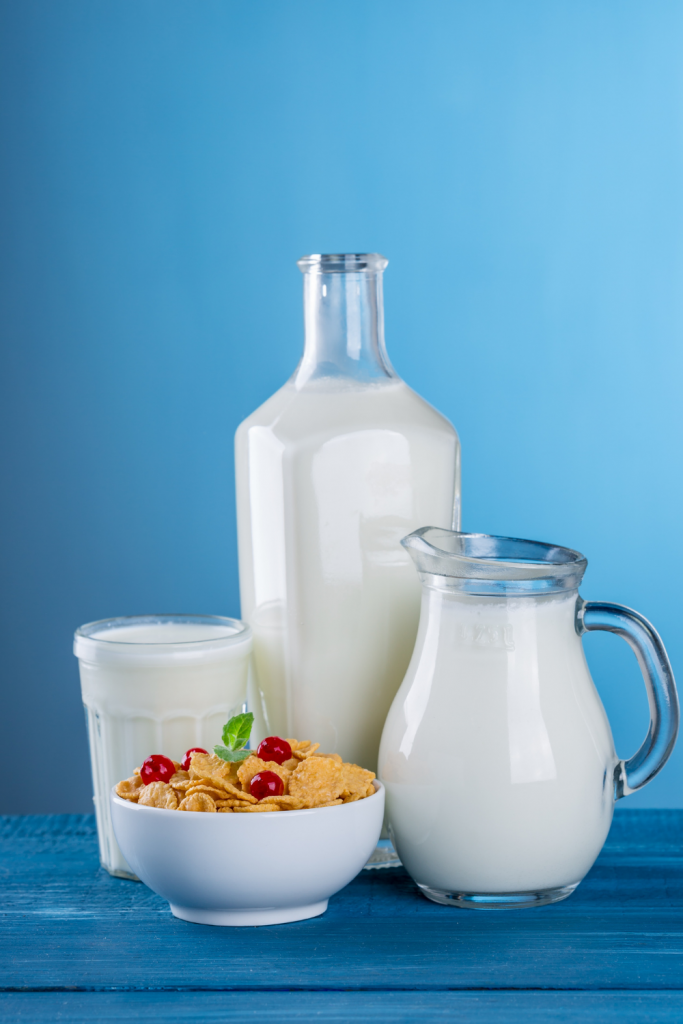
This pantry staple can save the day when the roads are icy and you can't get to the store. I like to buy it in smaller quantities, and store it in mylar bags to help keep it fresh.
Smaller quantities mean that you have less open at once that can go rancid. Whole dry milk powder can last up to 18 months properly stored, but non-fat milk powder can last much longer. You can also store some nuts in the freezer like almonds and make your own homemade almond milk when you need it.
Coconut Milk
Coconut milk is extremely versatile and has a few more health benefits than what you get when you drink regular milk. When it's canned, it can easily store on a pantry shelf. Use this to make ice cream, smoothies, in oatmeal or even in Indian Butter Chicken.
Cooking Oil
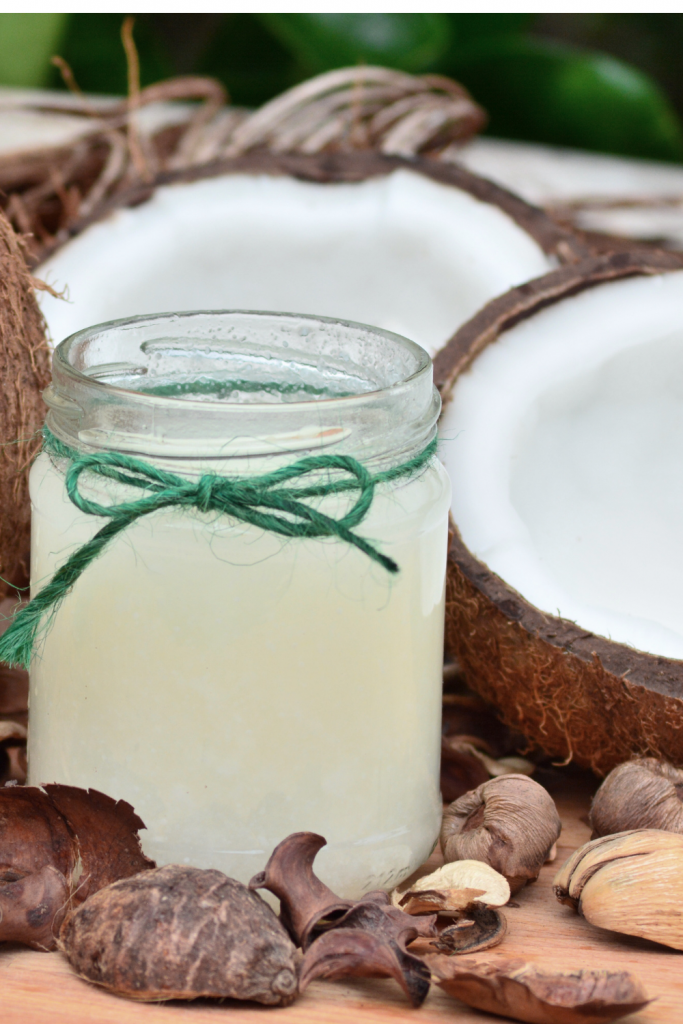
The oils I use most often in my kitchen are coconut oil, olive oil, tallow, and palm shortening. Olive oil can last up to 18 months when stored in a cool, dark place, and the rest can be stored nearly indefinitely on a pantry shelf.
If you'd like to store extra olive oil but are concerned about rancidity, you can store extra bottles in the freezer to help it last longer. See the top oils to store in your kitchen here.
Vanilla Extract
Pure vanilla extract will last forever, and it makes all your baking so much better. Look for pure extract with alcohol. As for how long does imitation vanilla flavor last, that can be from 2-4 years. Store both in airtight containers and in a cool, dry place.
Spices
Those beans and rice you are storing for hard times? They will be so much more palatable when you have spices to add to them. Spices are what make the meal. At a minimum, store salt, and pepper, both of which will last indefinitely.
It's best to buy your spices in bulk for maximum savings and generally can last between 9-15 months. To help preserve their flavor, vacuum seal them into smaller containers so you only have to open what you need at any time.
Sugar
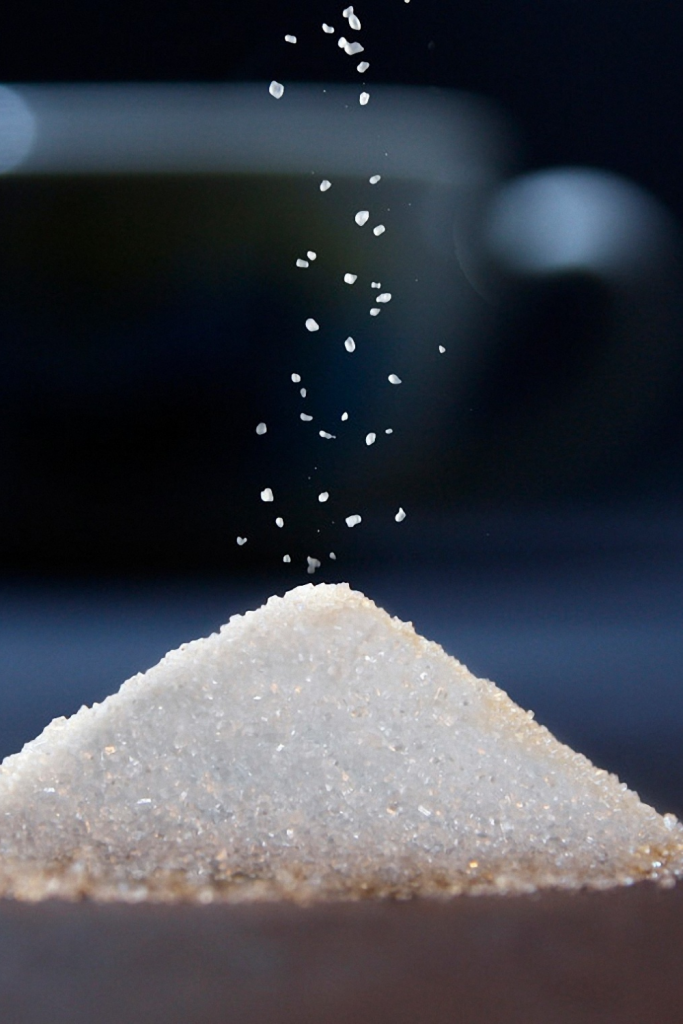
Great for canning and preserving food, sugar is another pantry staple you should never be without. Go ahead and buy that larger bag, and break it into smaller containers. Sugar will last forever.
The biggest enemy of sugar is moisture, so try and store it in air-tight containers such as canning jars. If your sugar does get rocks due to moisture coming in, simply break it up with a butter knife carefully. Or, you can dissolve it in water and use that for sweetening teas and coffee.
I store only white sugar, and molasses to make my own brown sugar. You can also place granulated sugar into a blender or food processor to make your own powdered sugar.
Honey
Honey is well known for its indefinite shelf life. Pure honey will actually crystallize over time. To get it back to a liquid state, simply place a container in a bowl of warm water.
Honey also has antibacterial properties to it and can be useful for helping small cuts heal. If you have access to a local beekeeper, raw honey is best. Store it in mason jars for easy pouring.
Maple Syrup
Pure maple syrup has an indefinite shelf life. If your pure maple syrup develops mold, you can remove it, heat the syrup to boiling, and then replace it into a clean container.
Be aware, however, that this will NOT be the case with maple syrup that is corn syrup based. That syrup will have a 2-year shelf life.
Oats
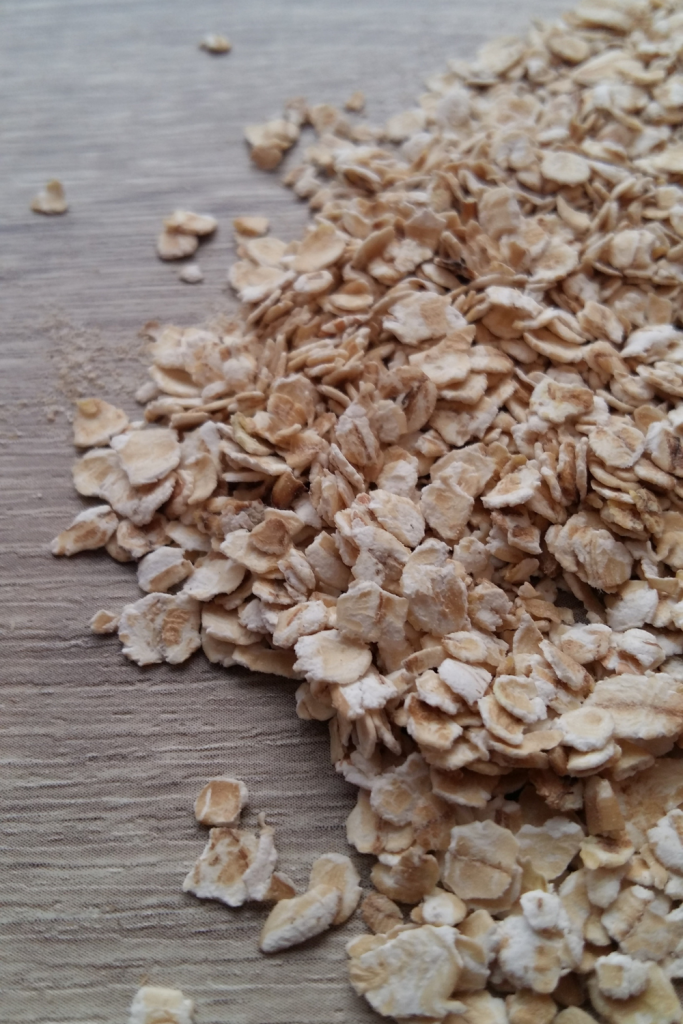
Oats come in different "types" that all start from the same plant. When the grain is hulled it's called "oat groats", when it's cut into smaller pieces, this is "steel cut" or "Irish oats". When the groats are steamed and rolled, this is how you get oatmeal. Oatmeal can be thick or thin, and the very thin oats are what is referred to as "quick oats".
Oat groats can last up to 30 years, like other grains. You can process them yourself with a food processor to make steel-cut oats, or a grain mill to make oat flour. Rolled oats take another special appliance attachment. However, you can store the rolled oats from the store.
Simply remove them from the cardboard container, as that can be susceptible to moisture, and vermin. Place the oats in a mylar bag and bucket, or in glass canning jars. In an oxygen-free environment that is protected from bugs, moths, and other vermin, oats can be stored for up to 25 years.
Cornmeal
There are 3 main types of corn. Sweet corn is what you eat from the cob in the summer. This is what you'd plant in a backyard garden.
Field or dent corn is whole corn that has been allowed to dry on the cob in the field. It's not very sweet to eat but makes great cornmeal. Popcorn is the smaller-shaped corn that you use to get a delicious snack. With this grain mill, you can make your own cornmeal from dent corn, or popcorn.
However, if buying another appliance just isn't in the budget, you can store cornmeal in its original packaging for 6-9 months on a pantry shelf. For longer storage, keep it in the freezer indefinitely. You can also store it in an airtight mylar bag for up to 10 years.
Coffee
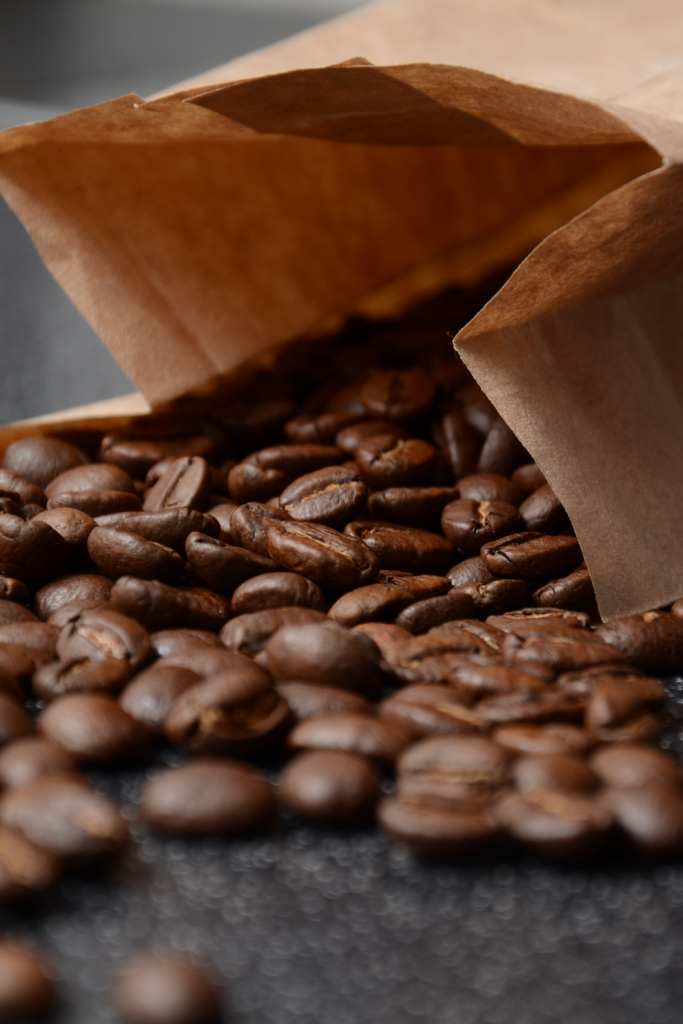
Going without coffee would be a tragedy in our house. A hot cup of coffee just makes the morning start better for us. In the original, open, container, coffee will last on a pantry shelf for up to 6 months. The vacuumed sealed coffee should be good for up to 4 years in a cool, dark place.
If you have the option, storing whole beans means you can store them in an airtight container for up to 10 years. However, freeze-dried coffee will last indefinitely. My hubby isn't fond of instant coffee, but in a pinch, it does the trick.
Cocoa Powder
Not only great for baking delicious brownies, but cocoa powder is also essential for hot chocolate. Any stressful situation can be made a bit easier with chocolate, right?
Now, cocoa powder doesn't really "go bad", it will lose its flavor after about 18 months. You will want to store this in an airtight container. Remove it from the original cardboard container to help stave off pests as well.
Dried fruits
Dried fruits such as raisins, blueberries, or peaches can make that morning oatmeal so much better. How long dried fruit will store depends on how the fruit was dried. Commercially dried fruit often gets more moisture out, and therefore will usually last much longer than home-dried fruit. If you find freeze-dried fruit, this can last nearly indefinitely.
Dried fruits face 2 issues; mold and moisture. Both can shorten their shelf life, so they are best stored in smaller containers, such as pint-sized canning jars. Vacuum sealing will help to keep the oxygen out, but please do NOT place an oxygen absorber with dried fruits. This can lead to botulism, which can be dangerous.
These are top foods that you should consider storing in your food pantry. That way you won’t find yourself scrambling around in the kitchen wondering how you’ll make dinner work, and you’ll have many long-lasting foods that can provide your family with good nutrition.
Posted from my blog with Exxp : https://www.hugforyourbelly.com/the-top-foods-to-store-long-term/
